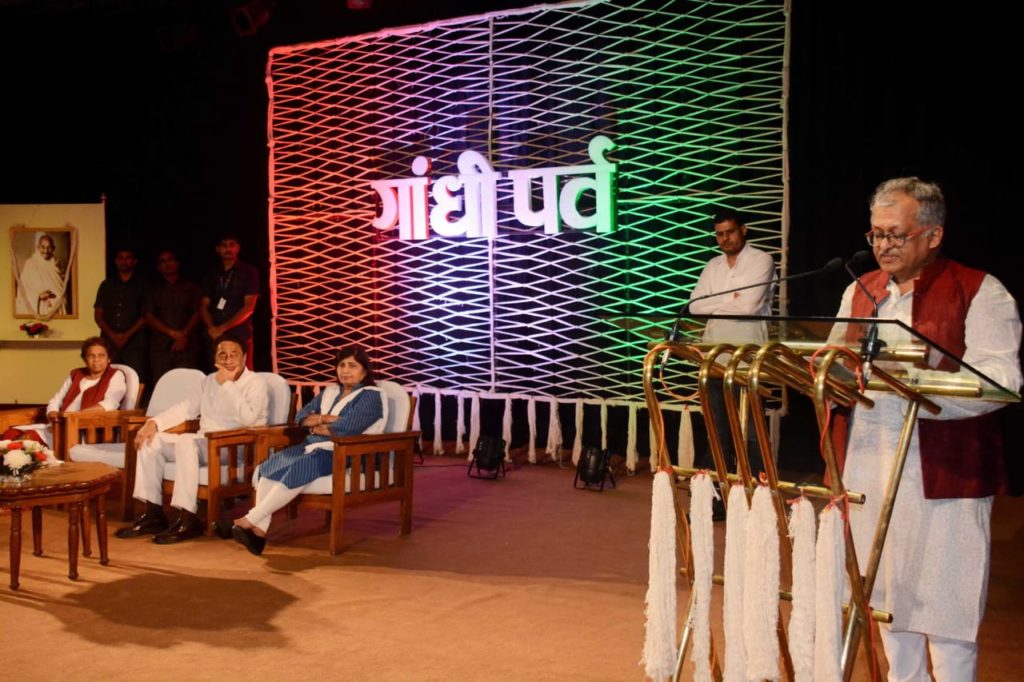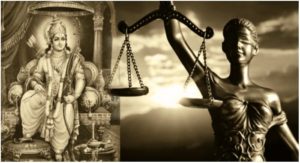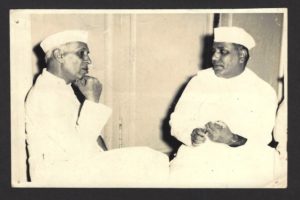Neeraj Jain
The Madhya Pradesh Government recently conferred the prestigious National Mahatma Gandhi Award for 2018 to Lokayat. The award has been given in recognition of the exemplary work done by Lokayat in spreading the message and values of Mahatma Gandhi among the youth. As a part of this, the recepient institution is honoured with a commendation plaque and a cash award of Rs 10 lakh. The award was given to Alka Joshi and Neeraj Jain, convenors of Lokayat, at a function held in Bhopal by the Chief Minister of Madhya Pradesh, Shri Kamal Nath, on October 2, 2019. We are giving below the acceptance speech by Neeraj Jain while accepting the award on behalf of Lokayat.
On behalf of Lokayat, both of us would like to thank the Madhya Pradesh Government for honouring our work by bestowing upon our organisation the National Mahatma Gandhi Award. Today is the perfect occasion for remembering the father of our nation, not just because it is his 150th Birth Anniversary, but also because his message, his values and ideals, are all the more relevant today—as they illuminate the path that should be followed by our country to tackle the most important problems being faced by it, some of which appear to be almost intractable—which also implies that we have forgotten his teachings. While laying the foundations for and transforming the Indian freedom struggle into a mass movement, Gandhiji’s vision of the freedom movement was that it must not remain confined to being only a political movement, but simultaneously, must also transform the people. And so, along with the political movement, he also laid great stress on building a social movement to bring the people out of their age-old caste and gender prejudices. One of the biggest myths about Gandhiji is that he was a supporter of the caste system. But that he did not believe in caste and untouchability is best seen from the practices followed in all the ashrams he founded, where no caste restrictions were observed. As the freedom struggle moved towards its victory, Gandhiji publicly announced that he would attend only those marriages which were inter-caste marriages and where one partner was a Dalit. Another issue that was very close to Gandhi’s heart was Hindu-Muslim unity. By the time Gandhiji took over the reins of the freedom struggle in the country, the British had succeeded in sowing the seeds of communalism among the people in order to divide the people along communal lines and thus weaken our freedom struggle. Gandhiji tried his best to build a unified freedom struggle. But he failed in his efforts to prevent the partition of the country. He then strove to douse the communal fires that engulfed northern India and was planning to do the same in Pakistan – but his life was cut short in a fit of anger by a fellow countryman. Today, seventy one years after the martyrdom of Gandhiji, the cause for which the father of our nation sacrificed his life has been forgotten, and the monster of communalism, which should more appropriately be called majoritarianism, is raising its ugly head once again. Even in the sphere of development, Gandhiji’s economic ideas are more relevant than ever before. The inequitous development model being followed in the country has made our country one of the most unequal in the world, pushing it into a deep economic and unemployment crisis. At such a critical time, we need to revisit Gandhiji’s economic philosophy. His insistence on focussing on development of the rural economy and decentralised development, are the real solutions to the economic crisis facing the country. Today, on the 150th birth anniversary of the greatest son that India has produced, the need is to take Gandhiji’s message to the masses, raise their consciousness in the true Gandhian way, and inspire them to stand up against all injustice; in this process of struggle, they will also transform themselves into truly human beings. This regeneration of our democracy through the teachings and practice of Mahatma Gandhi—is precisely what the activists of Lokayat are striving to do, through the innumerable activities that we take up. As Mahatma Gandhi had said, seventy years ago: Real swaraj will come not by the acquisition of authority by a few, but by the acquisition of the capacity by all to resist authority when it is abused. Thank you.



